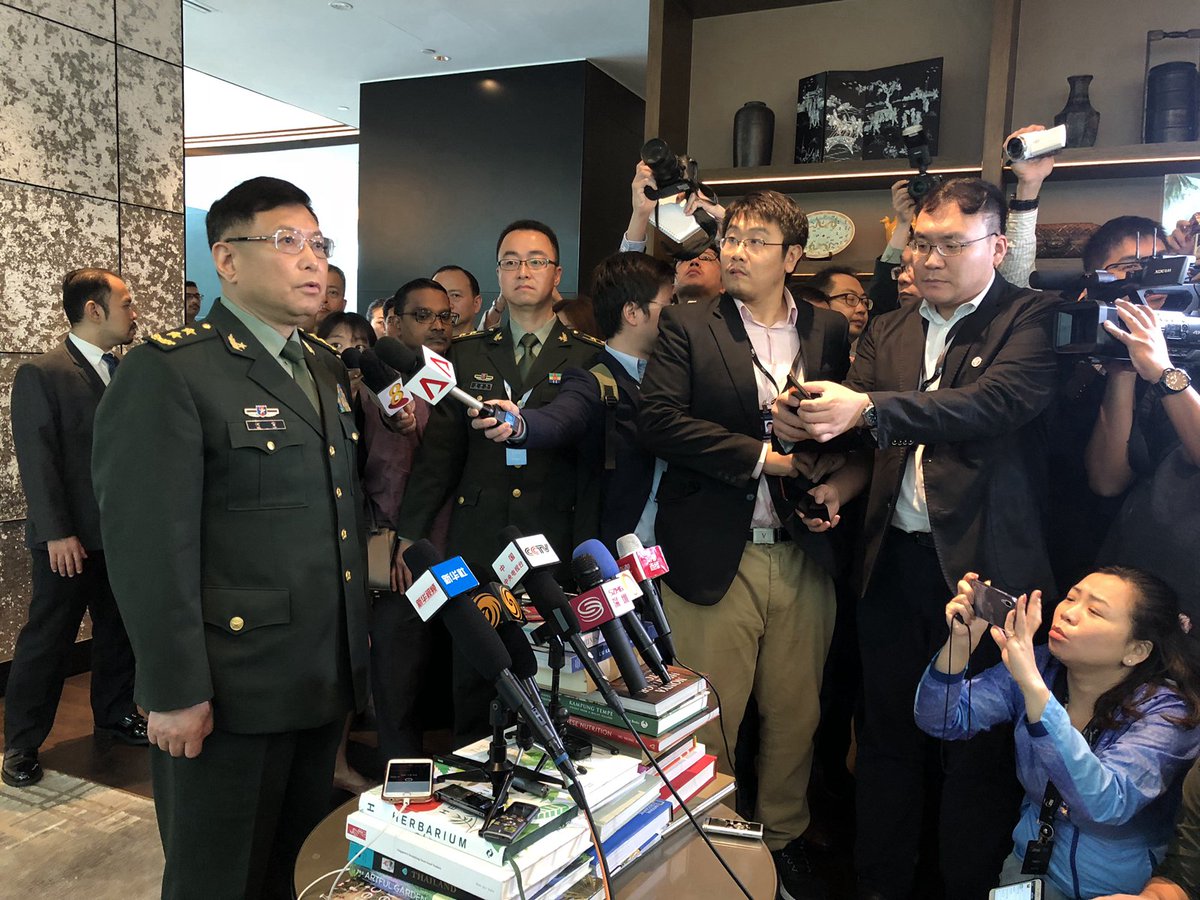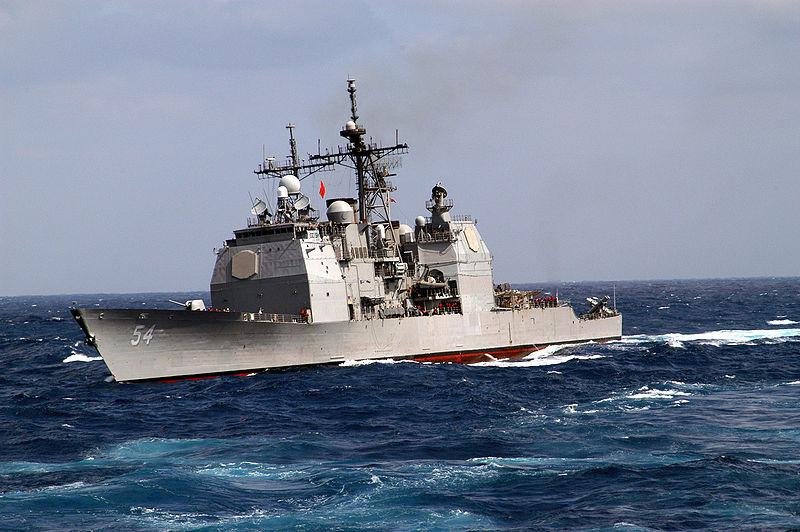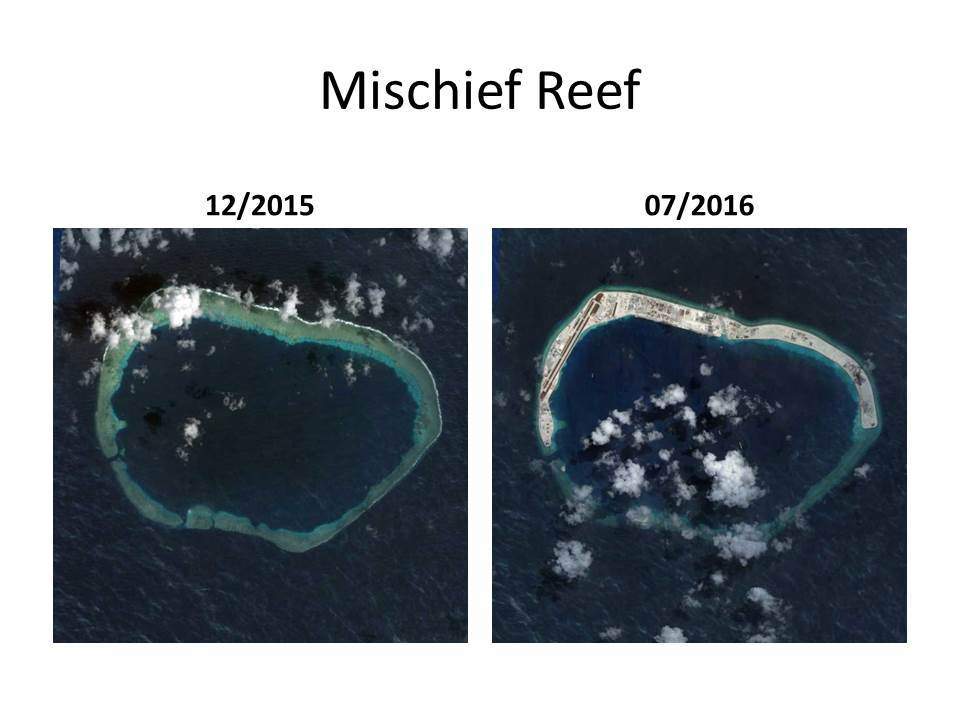Now south China sea is close to China that is why the name. Now why should busy body who live across the ocean feel threaten when all the relevant country has no problem ? Ok there is dispute but let live peacefully while they sort it out among themselves
Free passage has never been restrict or endanger in anyway make you wonder who is the aggressor here This article clearly articulate what is the problem here via Raphael
Written by on 2018-06-02
Yesterday, US Defense Secretary James “Mad Dog” Mattis delivered a speech attempting to justify the ever more frequent US provocations against China in the South China Sea. He
,
“The US will continue to pursue a constructive, results-oriented relationship with China, cooperating when possible and competing vigorously where we must. China’s policy in the South China Sea stands in stark contrast to the openness our strategy promises, it calls into question China’s broader goals”.
In reality, China’s goals are clear. Beijing seeks to confirm its sovereignty over a Sea on its maritime border for the same purposes that in the 1920s, the founder of the Turkish Republic, Ataturk sought to confirm the same status over the Turkish Straits. In 1841, the western powers effectively bullied Turkey into signing the London Straits Convention which while confirming the Ottoman Empire’s sovereignty over the Straits, also prohibited any warships other than Ottoman ships from passing through the straits during war time. This had the desired effect of provoking further hostilities between the Ottoman Empire and the Russian Empire, all the while British and French ships had open access to all sides of the Mediterranean.
After the First World War, the victorious western powers attempted to remove Turkish sovereignty over the Turkish Straits by making them an international zone under no one state’s authority. Ataturk refused and as a result the 1936 Montreux Convention allowed for all nations with ports on the Black Sea to pass through the Turkish Straits in times of war or peace while foreign ships would be banned in war time. It is this convention which continues to govern the status of the Turkish Straits to this day.
In The South China Sea, Beijing wants essentially what Turkey wanted and got in the age of Ataturk. China has no desire to close the South China Sea to the wider world, let alone the ASEAN countries who contest sovereignty over parts of the Sea. Instead, China seeks to use its military might and traditional role as the major power of the region in order to ensure that foreign provocations from powers who do not border the Sea are not able to effectively colonise the South China Sea as the western powers attempted to colonise the Turkish Straits in the early 20th century.
The dominance of US ships in the important Strait of Malacca which links the Asia-Pacific region to the Indian Ocean, has only further served to convince China of the importance of staking its sovereign claims to the South China Sea. Thus, the dispute has nothing to do with what the US deceptively calls “freedom of navigation” but has everything to do with China making sure that in a time of war, it is not a distant foreign superpower that controls crucial sea routes which border China.
To this end, China has always been willing to cooperate with ASEAN members with claims to the Sea just as Ataturk was willing to cooperate with fellow powers with ports on the Black Sea. The
between Philippine President Duterte and the Chinese government over mutual exploitation of South China Sea resources further confirms that China’s attitude is one that is constructive rather than threatening when it comes to working cooperatively with nearby states whose soil borders the Sea.
The only time China would ever militarily confront an ASEAN state over Sea claims is in the event of the US becoming a de-facto military protectorate of an ASEAN state. In this sense, any ASEAN member state that resorts to hiding behind US power instead of negotiating a diplomatic solution to joint South China Sea claims with Beijing, is ultimately signing its death warrant in the event of a wider Sino-US war in the region.
Just as Britain and France were all too happy to see Russia and Ottoman Turkey fight throughout the 18th and 19th centuries while they busily colonised Asia and later Africa too, the US today would be all too happy to see countries like Vietnam or The Philippines fight China with US weapons. This way, the US gets to successfully cause diplomatic and money wasting problems for China, gets to test its weapons against China’s and even if the worst happens. it will be states in south east Asia rather than US soil which will be destroyed in such a conflict.
This is why the best “offence” for ASEAN states that still have disputes with China is a defensive posture not against Beijing but against Washington’s gamesmanship in the region. If the US was removed as a factor in south east Asia, it is certain that China would work with its ASEAN partners to pursue the kind of win-win solutions that Beijing and Manila have embarked on since the arrival of President Duterte and likewise, those embarked on when Ataturk and Lenin ended centuries of mutual hostility between two great Eurasian powers. It is therefore the responsibility of ASEAN nations to maintain good trading relations with both China and the US, but when it comes to military provocations, the best ASEAN can say to the US is “thanks but no thanks”.
Thus, it becomes perfectly obvious that China is asserting its claims without ambiguity, not because it wants to threaten ASEAN states but because China does not want to see the US embarked on de-facto maritime colonisation of Asian waterways.
It can therefore be surmised that the South China Sea issue is only a “South China Sea conflict” if there is an aggressive party. The clear aggressor is the United States and the sooner the ASEAN states on the South China Sea understand this, the sooner they can reach a win-win agreement with Beijing that will be good for all of Asia.




